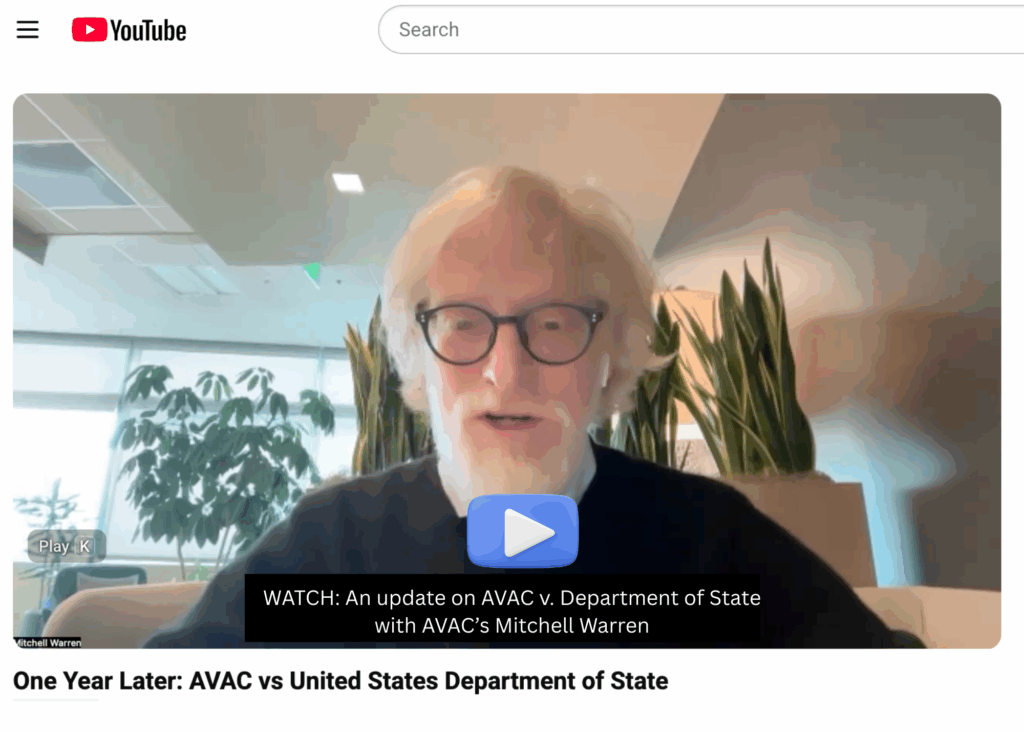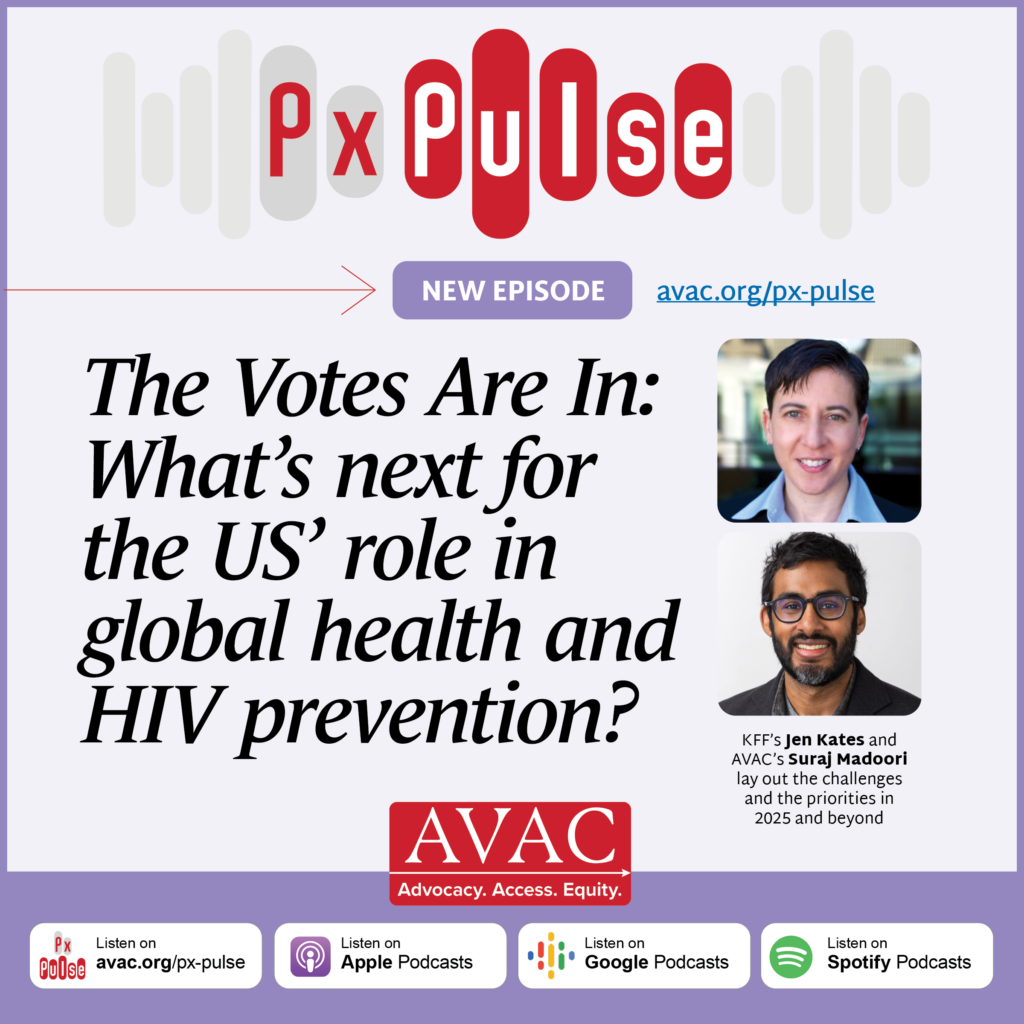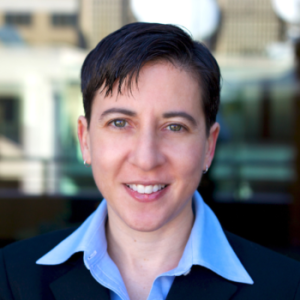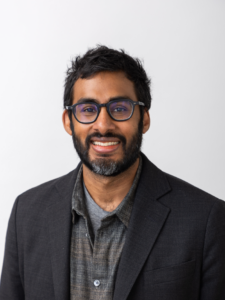Over the last year, governments and health leaders have been working to restructure the global health system to ensure pandemic prevention, preparedness, and response. The COVID-19 pandemic forced a reckoning, exposing a deeply inequitable global health system, and advocates, civil society, health workers and leaders representing southern populations, have called on governments to rewrite the world’s contract – in particular, asking Global North governments to finally give up some power and, in the service of preventing and preparing for pandemic threats, agree to join a system that is equitable and aims to prevent health threats everywhere and prepare everyone.
At AVAC, we have put a lot of hope in the processes of the Pandemic Accord, the UN High-Level Meeting (HLM) on Prevention, Preparedness, and Response (PPPR), and the development of a medical countermeasures (MCM) platform. (To understand how these three efforts fit together, see AVAC’s Advocate’s Guide to PPPR.) However, sadly, and in honesty, predictably, many high-income countries seem unwilling to alter the status quo. We see four main sticking points that come down to whether these countries will relinquish control:
Data sharing
Global agreements to share pathogen data and genomic sequencing in the event of a novel pandemic threat represent one of the most important areas of negotiation in these processes. Understandably, many countries are keen to ensure they can have access to data on newly discovered pathogens so they can create a vaccine or treatment as soon as possible and protect their citizens. But since research, manufacturing capacity, and resources are concentrated in the Global North, such an agreement presents a bad deal for countries in the Global South. Such an agreement would require them to share the data they have access to, but continue to be last in line for the vaccines or other interventions that get developed from that data. To add insult to injury, they may well be punished for sharing it, as was the case when the Republic of South Africa shared data on the Omicron mutation of COVID-19 and then saw Global North countries subsequently block entry to their citizens.
But so far, the countries pushing to secure agreements on data sharing refuse to grapple with these concerns. They have not budged and remain unwilling to support language that would ensure access to the beneficial medical countermeasures and that are developed from shared data. While the potential for open science and a platform for data sharing holds promise, these efforts will predictably result in simply exacerbating inequalities unless these agreements beef up commitments around equity. Negotiations on this issue have been tense, with no resolution in sight.
R&D
The concentration of research capacity in the Global North represents another major hurdle. Because the majority of resources for R&D are held by either Northern governments or corporations headquartered in the North, their priorities dictate the answers to questions such as which pathogens, what intervention to pursue, and what populations to help first. For example, $35.8B was spent on medical research worldwide in 2022, but only $3.95B was invested in R&D on diseases with an outsized impact on people living in the global south (including HIV, tuberculosis, and malaria) in 2020. Some governments, like the countries in the ‘Group on Equity’, are calling for more distributed investments, more collective resources dedicated to pathogens of pandemic potential (such as those in the Africa CDC’s priority list), and agreed-upon standards for the diversity of populations that must be included in clinical trials. Negotiations are ongoing, with a lot of opposition coming from pharmaceutical corporations.
MCM platform
We are quite concerned with the current process of developing an MCM platform that has been proposed by the G7 and G20, along with WHO’s support. The stated aim of the platform is to coordinate equitable development, distribution, and delivery of medical countermeasures for pandemics, including vaccines, therapeutics, diagnostics, and other tools, and to implement the platform in ‘peacetime’ before the next pandemic hits so we’re ready. So far, however, the development process has been largely driven by G7 and G20 countries, both because it will take investment from these countries and because less-resourced countries simply do not have capacity to engage in another PPPR-related process in addition to the Pandemic Accord and UN HLM. Discussions between civil society and country representatives are not happening – while WHO and different agencies have held official meetings with countries, civil society have been relegated to separate discussions. Some global health leaders, from both countries and agencies, have expressed a desire to leave ‘thorny’ issues out of it. But public health advocates and civil society insist that these issues such as intellectual property, clinical trials and R&D prioritization, allocation, the inclusion of marginalized groups, and governance must be considered now before the platform is stood up. It’s unclear who is making the decisions here, but it is certainly not those most burdened by disease.
Financing
The Pandemic Accord draft and the draft UN Declaration on PPPR include few concrete references to PPPR financing targets or finance reform. One of those few is the mention of new-to-the-field Pandemic Fund as a primary resourcing vehicle. This apparent reliance on the Pandemic Fund raises serious questions, as the Fund has offered just $300M in the first round of funding. PPPR agreements that defer finance commitments to the Fund are misguided at best and reveal a lack of ambition to effectively confront pandemic threats. The world currently needs to turn this ship around. Pandemic preparedness must not be an afterthought, a half-hearted boondoggle that only serves the interest of rich countries. All of the issues raised here, in addition to the need to upgrade and expand surveillance systems, increase and strengthen the health workforce, and build up regional manufacturing capacity, need resources to be implemented. On top of those pressing needs, many of the countries that are in most need of investment in pandemic preparedness are straining to manage enormous debt burdens imposed by wealthy countries. Advocates are asking that governments include, in the UN Declaration on PPPR and Pandemic Accord, reference to existing mechanisms such as the Global Fund to Fight AIDS, Tuberculosis, and Malaria (currently the largest funder of PPPR worldwide), the WHO Contingency Fund for Emergencies, and the IMF Resilience and Sustainability Trust as existing vehicles for pandemic preparedness resourcing. PPPR will advance equitably and effectively, and less resources will be needed, if countries commit to leveraging what has already been built in the ongoing responses to HIV, tuberculosis, and malaria. PPPR must learn from twenty years of demonstrated success fighting pandemic and epidemic threats.
So who is driving this ship?
It appears that those who have historically held control have not learned their lesson after yet another global pandemic that abandoned poorer countries and left all of us more vulnerable to the next pandemic. Instead of facing the reality that disease knows no borders and resetting the global health system, those who hold the purse strings seem content to continue with the status quo – hoarding the fruits of science, reinforcing exclusive and hegemonic systems, consolidating power among the few, and keeping health systems fragmented and underfunded. It’s an upside-down system – with those most secure and least in touch with the impact of their decisions in charge. The PPPR ship must be driven by those most burdened by pandemic threats and ongoing epidemics, or we will most certainly face another devastating pandemic and decision-makers will wish they turned it around now.




